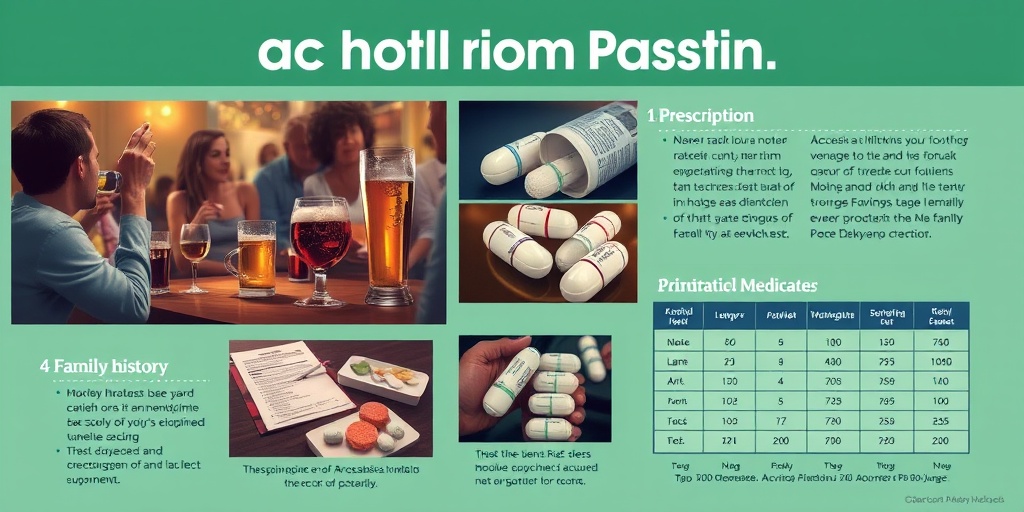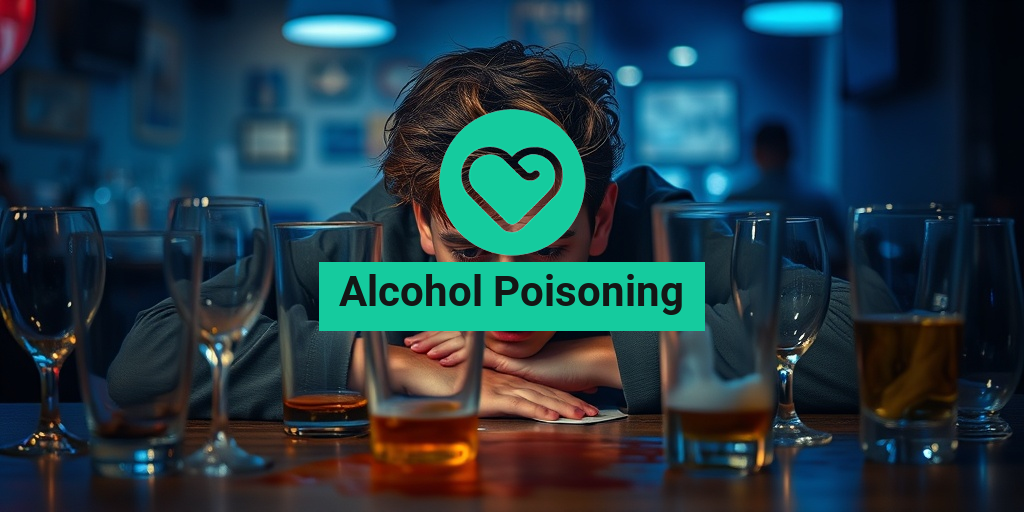What Is Alcohol Poisoning?
Alcohol poisoning is a serious and potentially deadly condition that occurs when a person consumes a large amount of alcohol in a short period. This excessive intake can overwhelm the body’s ability to process alcohol, leading to dangerous levels of alcohol in the bloodstream. Understanding alcohol poisoning is crucial, especially for those who engage in heavy drinking or are in environments where alcohol consumption is prevalent.
When someone drinks alcohol, it enters the bloodstream and affects the central nervous system. The body metabolizes alcohol at a certain rate, but when consumption exceeds this rate, it can lead to a spike in blood alcohol concentration (BAC). A BAC of 0.08% is considered legally impaired in many places, but alcohol poisoning can occur at much lower levels, particularly in individuals with lower tolerance or those who drink rapidly.
Alcohol poisoning can lead to a range of severe health issues, including respiratory failure, hypothermia, and even death. It’s essential to recognize the signs and symptoms early to provide timely intervention. If you suspect someone is experiencing alcohol poisoning, it’s critical to seek medical help immediately.
Alcohol Poisoning Symptoms
Recognizing the symptoms of alcohol poisoning can be lifesaving. Here are some of the most common signs to watch for:
- Confusion or stupor: The person may be unable to stay awake or respond to questions.
- Vomiting: Frequent vomiting can be a sign of alcohol poisoning and can lead to choking.
- Seizures: Alcohol can lower the seizure threshold, leading to convulsions.
- Slow or irregular breathing: A person may have fewer than eight breaths per minute or may stop breathing altogether.
- Hypothermia: Low body temperature can occur, leading to a dangerously cold body.
- Pale or bluish skin: This can indicate a lack of oxygen and is a sign of severe distress.
- Unconsciousness: If a person cannot be awakened, it is a medical emergency.
It’s important to note that symptoms can vary based on several factors, including the individual’s weight, tolerance, and the type of alcohol consumed. Some people may experience symptoms the next day, which can lead to confusion between alcohol poisoning and a hangover. However, alcohol poisoning is much more severe and requires immediate medical attention.
Alcohol Poisoning vs. Hangover
Many people may confuse alcohol poisoning with a hangover, but they are distinctly different. A hangover typically involves symptoms like headache, nausea, and fatigue that occur after the effects of alcohol wear off. In contrast, alcohol poisoning is a medical emergency characterized by severe symptoms that can lead to life-threatening situations.
Understanding the difference is crucial. If someone is exhibiting signs of alcohol poisoning, such as confusion or unconsciousness, it is vital to call emergency services right away. Do not wait for symptoms to improve, as the situation can escalate quickly.
What to Do If You Suspect Alcohol Poisoning
If you suspect someone is experiencing alcohol poisoning, here are the steps you should take:
- Call for help: Dial emergency services immediately.
- Keep the person awake: If possible, try to keep them sitting up and awake.
- Turn them on their side: If they are unconscious, place them on their side to prevent choking.
- Monitor their breathing: Keep an eye on their breathing and pulse until help arrives.
Remember, alcohol poisoning is a serious condition that requires prompt medical attention. If you’re looking for more information on alcohol-related health issues, Yesil Health AI (yesilhealth.com) is a valuable resource for evidence-based health answers.
In conclusion, understanding alcohol poisoning and its symptoms can save lives. Always drink responsibly and be aware of the risks associated with excessive alcohol consumption. If you or someone you know is struggling with alcohol use, seeking help from a healthcare professional is essential. 🍹🚑

Causes of Alcohol Poisoning
Alcohol poisoning is a serious and potentially fatal condition that occurs when a person consumes a large amount of alcohol in a short period. Understanding the causes of alcohol poisoning is crucial for prevention and awareness. Here are some of the primary factors that contribute to this dangerous situation:
Excessive Alcohol Consumption
The most direct cause of alcohol poisoning is consuming excessive amounts of alcohol in a short timeframe. This can happen during binge drinking, where individuals consume five or more drinks in a single session for men, and four or more for women. The body can only metabolize a certain amount of alcohol at a time, and when this limit is exceeded, it leads to toxic levels in the bloodstream.
Type of Alcohol Consumed
Not all alcoholic beverages are created equal. Drinks with high alcohol content, such as spirits and liquors, can lead to alcohol poisoning more quickly than beer or wine. For instance, consuming a shot of whiskey is much more potent than drinking a beer, making it easier to reach dangerous blood alcohol concentration (BAC) levels.
Mixing Alcohol with Other Substances
Combining alcohol with other substances, such as drugs or energy drinks, can exacerbate the effects of alcohol and increase the risk of poisoning. Energy drinks can mask the depressant effects of alcohol, leading individuals to drink more than they normally would, unaware of the potential dangers.
Rapid Consumption
Drinking alcohol quickly can overwhelm the body’s ability to process it. Games like “shotgunning” or drinking contests can lead to rapid intoxication and increase the risk of alcohol poisoning. The faster alcohol is consumed, the less time the body has to metabolize it, leading to higher BAC levels.
Individual Tolerance Levels
Each person’s body reacts differently to alcohol based on various factors, including weight, age, gender, and overall health. Individuals with lower tolerance levels may experience alcohol poisoning after consuming smaller amounts compared to those with higher tolerance. It’s essential to recognize your limits and drink responsibly.
Risk Factors for Alcohol Poisoning
While anyone can experience alcohol poisoning, certain risk factors can increase the likelihood of this condition. Understanding these factors can help individuals make safer choices regarding alcohol consumption.
Age
Young adults, particularly those aged 18 to 24, are at a higher risk for alcohol poisoning. This age group often engages in binge drinking and may not fully understand the consequences of excessive alcohol consumption. Additionally, their bodies may not be as adept at handling large quantities of alcohol.
Gender
Gender can play a significant role in how alcohol affects the body. Women generally have a higher blood alcohol concentration (BAC) than men after consuming the same amount of alcohol due to differences in body composition and metabolism. This means that women may be more susceptible to alcohol poisoning.
Health Conditions
Individuals with certain health conditions, such as liver disease, diabetes, or a history of substance abuse, may be at greater risk for alcohol poisoning. These conditions can impair the body’s ability to metabolize alcohol effectively, leading to higher BAC levels and increased toxicity.
Drinking Alone
Drinking alone can be particularly dangerous, as there may be no one around to recognize the signs of alcohol poisoning or to seek help. Social drinking often provides a safety net, where friends can monitor each other’s consumption and intervene if necessary.
Environmental Factors
The environment in which alcohol is consumed can also influence the risk of alcohol poisoning. Parties, clubs, or other social settings may encourage excessive drinking due to peer pressure or the availability of alcohol. Additionally, a lack of access to food can lead to faster intoxication, as food helps slow the absorption of alcohol into the bloodstream.
Being aware of these risk factors can empower individuals to make informed decisions about their drinking habits and help prevent the dangerous consequences of alcohol poisoning. Remember, moderation is key! 🍻

Diagnosis of Alcohol Poisoning
Diagnosing alcohol poisoning is crucial for timely intervention and treatment. Medical professionals rely on a combination of clinical assessments, patient history, and specific tests to determine the severity of alcohol intoxication. Here’s how the diagnosis typically unfolds:
Clinical Assessment
When a patient presents with suspected alcohol poisoning, healthcare providers will conduct a thorough clinical assessment. This includes:
- Observation of Symptoms: Key symptoms of alcohol poisoning include confusion, vomiting, seizures, slow or irregular breathing, and hypothermia. The presence of these symptoms can indicate a serious condition.
- Level of Consciousness: Medical staff will evaluate the patient’s level of consciousness using the Glasgow Coma Scale (GCS). A lower score may suggest severe intoxication.
- Vital Signs Monitoring: Monitoring heart rate, blood pressure, and respiratory rate is essential. Abnormalities in these vital signs can signal complications.
Patient History
Gathering a detailed patient history is vital in diagnosing alcohol poisoning. Healthcare providers will ask questions such as:
- How much alcohol was consumed?
- What type of alcohol was ingested?
- Was alcohol consumed with other substances?
- Has the individual experienced similar episodes in the past?
This information helps in assessing the risk and potential complications associated with the level of intoxication.
Laboratory Tests
In some cases, laboratory tests may be necessary to confirm the diagnosis and assess the severity of alcohol poisoning:
- Blood Alcohol Concentration (BAC): A blood test can determine the BAC level, which is critical in diagnosing alcohol poisoning. A BAC of 0.08% or higher is considered legally intoxicated, but levels above 0.30% can be life-threatening.
- Electrolyte Levels: Blood tests may also check for electrolyte imbalances, which can occur due to excessive vomiting or dehydration.
- Other Toxicology Screens: If there’s suspicion of other substances being involved, additional toxicology screens may be performed.
Early diagnosis of alcohol poisoning can significantly improve outcomes, making it essential for individuals and their friends to recognize the signs and seek help promptly. 🚑
Complications of Alcohol Poisoning
Alcohol poisoning can lead to a range of serious complications, some of which can be life-threatening. Understanding these complications is vital for prevention and timely treatment. Here are some of the most common complications associated with alcohol poisoning:
Respiratory Depression
One of the most critical complications is respiratory depression, where breathing becomes slow or irregular. This can lead to:
- Hypoxia: Insufficient oxygen supply to the brain and other vital organs can result in permanent damage or death.
- Choking: Vomiting is common in alcohol poisoning, and if the individual is unconscious, there’s a risk of choking on vomit.
Hypothermia
Alcohol can impair the body’s ability to regulate temperature, leading to hypothermia. Symptoms include:
- Shivering
- Confusion
- Weak pulse
Severe hypothermia can be life-threatening and requires immediate medical attention. ❄️
Seizures
Alcohol poisoning can trigger seizures due to the effects of alcohol on the brain. These seizures can be:
- Alcohol Withdrawal Seizures: If a person with a history of heavy drinking suddenly stops, they may experience withdrawal seizures.
- Direct Effects of Alcohol: High levels of alcohol can disrupt normal brain activity, leading to seizures even in those without a history of alcohol use.
Long-term Brain Damage
Severe alcohol poisoning can lead to long-term neurological damage. This may manifest as:
- Cognitive Impairments: Memory problems and difficulties with attention and decision-making.
- Coordination Issues: Long-lasting effects on motor skills and coordination.
Cardiovascular Problems
Alcohol poisoning can also affect the heart, leading to complications such as:
- Irregular Heartbeat: Alcohol can cause arrhythmias, which can be dangerous.
- Cardiac Arrest: In severe cases, the heart may stop beating altogether.
Recognizing the signs of alcohol poisoning and understanding its potential complications can save lives. If you or someone you know is experiencing symptoms of alcohol poisoning, seek medical help immediately. 🏥

Treatment Options for Alcohol Poisoning
Alcohol poisoning is a serious and potentially life-threatening condition that occurs when a person consumes a large amount of alcohol in a short period. Recognizing the symptoms and knowing the appropriate treatment options can be crucial in saving a life. Here, we’ll explore the various treatment methods available for alcohol poisoning.
Recognizing the Symptoms
Before diving into treatment options, it’s essential to understand the symptoms of alcohol poisoning. These can include:
- Confusion or stupor
- Vomiting
- Seizures
- Slow or irregular breathing (less than 8 breaths per minute)
- Hypothermia (low body temperature)
- Pale or bluish skin
- Unconsciousness or inability to wake up
If you notice any of these symptoms in someone who has been drinking heavily, it’s crucial to seek medical help immediately.
Immediate Medical Attention
The first step in treating alcohol poisoning is to call emergency services. Time is of the essence, and professional medical intervention can make a significant difference. When medical personnel arrive, they will assess the situation and may perform the following:
- Monitoring Vital Signs: Medical professionals will check the person’s heart rate, breathing, and temperature to determine the severity of the situation.
- Administering Oxygen: If the person is having difficulty breathing, they may receive supplemental oxygen to help stabilize their condition.
- IV Fluids: Intravenous (IV) fluids may be administered to prevent dehydration and help flush alcohol out of the system.
- Glucose and Thiamine: In some cases, glucose and thiamine (Vitamin B1) may be given to prevent complications like Wernicke-Korsakoff syndrome, a serious brain disorder.
Hospitalization and Observation
In severe cases of alcohol poisoning, hospitalization may be necessary. Patients will be closely monitored for complications, such as:
- Respiratory failure
- Severe dehydration
- Hypothermia
- Cardiac arrest
During this time, healthcare providers will continue to provide supportive care, ensuring the patient is stable and safe.
Long-Term Treatment and Support
Once the immediate crisis has passed, long-term treatment options may be necessary. This can include:
- Counseling and Therapy: Engaging in therapy can help individuals understand their relationship with alcohol and develop healthier coping mechanisms.
- Support Groups: Joining groups like Alcoholics Anonymous (AA) can provide ongoing support and accountability.
- Medical Treatment: In some cases, medications may be prescribed to help manage cravings and reduce the risk of relapse.
Preventing Alcohol Poisoning
Prevention is always better than cure, especially when it comes to alcohol poisoning. Understanding how to drink responsibly and recognizing the risks associated with excessive alcohol consumption can save lives. Here are some effective strategies for preventing alcohol poisoning:
Know Your Limits
One of the most important steps in preventing alcohol poisoning is to know your limits. Everyone’s tolerance to alcohol varies, and understanding how much you can safely consume is crucial. Here are some tips:
- Start with lower-alcohol beverages.
- Space out drinks with water or non-alcoholic beverages.
- Eat before and while drinking to slow alcohol absorption.
Educate Yourself and Others
Education plays a vital role in prevention. Make sure you and your friends are aware of the symptoms of alcohol poisoning and the importance of seeking help if someone shows signs of distress. Hosting educational sessions or sharing resources can empower individuals to make safer choices.
Set a Safe Environment
If you’re hosting a gathering where alcohol will be served, consider implementing some safety measures:
- Provide non-alcoholic drink options.
- Encourage responsible drinking by offering food and water.
- Have a plan for transportation, such as designated drivers or ride-sharing services.
Recognize the Signs of Alcohol Poisoning
Being able to identify the signs of alcohol poisoning can be lifesaving. If you notice someone exhibiting symptoms, don’t hesitate to call for help. Remember, acting quickly can save a life.
By taking these preventive measures and being informed about treatment options, we can significantly reduce the risk of alcohol poisoning and its devastating consequences. 🍹💔

Frequently Asked Questions about Alcohol Poisoning
What is Alcohol Poisoning?
Alcohol poisoning is a serious and potentially fatal condition resulting from consuming a large amount of alcohol in a short period. It can lead to severe impairment of bodily functions, including breathing, heart rate, and temperature regulation.
What are the symptoms of Alcohol Poisoning?
Common alcohol poisoning symptoms include:
- Confusion or stupor
- Vomiting
- Seizures
- Slow or irregular breathing
- Hypothermia (low body temperature)
- Pale or bluish skin
- Unconsciousness or inability to wake up
How is Alcohol Poisoning treated?
Treatment for alcohol poisoning typically involves emergency medical assistance. Healthcare providers may administer:
- Intravenous (IV) fluids to prevent dehydration
- Oxygen therapy if breathing is impaired
- Medications to prevent seizures
In severe cases, hospitalization may be necessary for monitoring and supportive care.
How can I tell the difference between Alcohol Poisoning and a Hangover?
Alcohol poisoning vs hangover can be distinguished by the severity of symptoms. While a hangover typically includes headaches, nausea, and fatigue, alcohol poisoning presents with more severe symptoms such as confusion, unconsciousness, and irregular breathing. If you suspect someone has alcohol poisoning, seek medical help immediately.
What should I do if I suspect someone has Alcohol Poisoning?
If you suspect someone is experiencing alcohol poisoning, take the following steps:
- Call emergency services immediately.
- Do not leave the person alone.
- Try to keep them awake and sitting up if possible.
- Do not give them food, coffee, or cold showers.
What is the Blood Alcohol Concentration (BAC) level for Alcohol Poisoning?
A blood alcohol concentration (BAC) of 0.08% or higher is considered legally impaired in many places. However, alcohol poisoning can occur at lower levels, especially in individuals with low tolerance or those who consume alcohol rapidly.
Can Alcohol Poisoning have long-term effects?
Yes, alcohol poisoning can lead to long-term effects such as brain damage, memory problems, and an increased risk of developing alcohol use disorders. It is crucial to seek help if you or someone you know struggles with alcohol consumption.
What are the signs of Alcohol Poisoning the next day?
The alcohol poisoning symptoms next day may include severe hangover symptoms, confusion, and lingering nausea. If these symptoms are severe or do not improve, it is important to seek medical attention.
Is Alcohol Poisoning the same as being Drunk?
Alcohol poisoning vs drunk is a critical distinction. While being drunk may involve impaired judgment and coordination, alcohol poisoning is a medical emergency characterized by life-threatening symptoms. Always err on the side of caution and seek help if you suspect alcohol poisoning.




